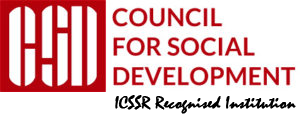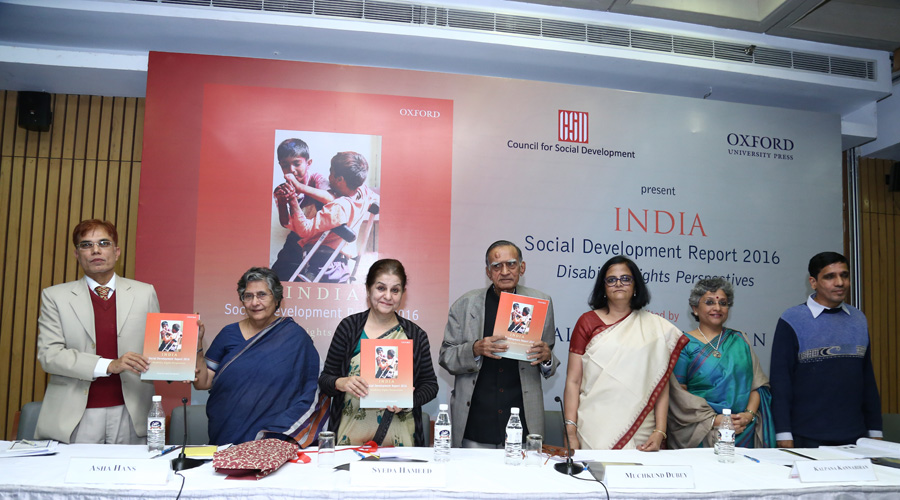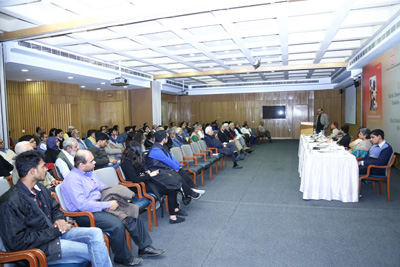India’s Black Economy: Implications, Causes and Remedies
Speaker: Professor Arun Kumar
Chair: Professor Muchkund Dubey
Date: December 22, 2016 (Thursday)
Time: 3.30 pm
Venue: Durgabai Deshmukh Memorial Lecture Hall, CSD,
Sangha Rachna, 53 Lodi Estate, New Delhi 110003
Abstract
India’s black economy is roughly estimated to be 62% of GDP – generating at current prices in 2016-17, about Rs.93 lakh crore or $1.4 trillion. It is so extensive because it is generated in every sector and economic activity and all the elite sections of society are involved in it. It is in both the public and the private sectors and involves the entire elite class of India like, politicians, industrialists, army men, judges, bureaucrats, lawyers and teachers.
Taxes not collected at current rates of taxes would amount to about 24% of GDP in 2014-15. If this amount could be collected, there would be a surplus in the budget rather than a deficit and enough money for employment generation, education and infrastructure, like, roads.
It aggravates the major problems facing society like, inflation, unemployment, fiscal crisis, balance of payments problems, flight of capital, inequality, criminalization in society, vitiation of the elections and politics and poor work ethic. It results in the failure of policy and waste of national resources thus slowing down development. It is the underlying cause of the uncivilized conditions in which the vast majority of Indian live today.
It needs to be remedied but to do that we need to understand the causes underlying its existence and growth since independence. There have been dozens of committees and commissions that have looked at its different aspects and made thousands of suggestions. Hundreds of these suggestions have been implemented but the black economy has continued to grow. Recently various steps have been taken but without making a dent on the problem.
The talk will briefly address issues like, what the black economy is and what it is not, what are its consequences, what are the implications, causes, remedies that have been tried and what may work.
Speaker
Professor Arun Kumar taught Economics in Centre for Economic Studies and Planning, Jawaharlal Nehru University from 1984 to 2015. He went to Princeton University USA for Ph.D. in Physics but in 1977 switched to Ph.D. in Economics at Jawaharlal Nehru University. He completed B.Sc. (Physics) from St. Stephens College, India in 1970.
His book `The Black Economy in India’, published by Penguin has broken new ground in thinking about the Indian Economy and its development. He has specialized in Development, Public Finance and Public Policy and Macroeconomics and published many articles in these areas. He has published a book titled `Challenges Facing Indian Universities’ and written extensively on issues pertaining to Higher Education in India. He recently published a book titled `Indian Economy since Independence: Persisting Colonial Disruption’.
He authored the Alternative Budgets for 1993-94 and 1994-95 which proposed alternative economic policies for the country. These were presented before a Citizen’s Assembly consisting of eminent citizens of the country. He has been a member of the Group producing the Alternative Economic Survey for the last 25 years. These documents provide an alternative analysis of the official data. He has written extensively on globalization and its impact on the Indian Society and on issues of public policy. The writings have been in academic journals as well in popular press.



 The Report released today deals with the dimensions, problems and policy measures for the disabled population in India. Almost all the papers included in the thematic section of the Report contain the analysis and findings of new research commissioned for the Report, on conceptualisation of disability, gaps in the data relating to this problem, diversity and the plurality of disability prevailing in the country, the problem faced by the disabled in different sectors of activities particularly education, health and employment and perspectives on the rights of the disabled as contained in the relevant International Convention and national laws. The Report forcefully argues that the problem of the disabled is not merely that of deprivations, discrimination and denial but also of violation of their human rights.
The Report released today deals with the dimensions, problems and policy measures for the disabled population in India. Almost all the papers included in the thematic section of the Report contain the analysis and findings of new research commissioned for the Report, on conceptualisation of disability, gaps in the data relating to this problem, diversity and the plurality of disability prevailing in the country, the problem faced by the disabled in different sectors of activities particularly education, health and employment and perspectives on the rights of the disabled as contained in the relevant International Convention and national laws. The Report forcefully argues that the problem of the disabled is not merely that of deprivations, discrimination and denial but also of violation of their human rights.